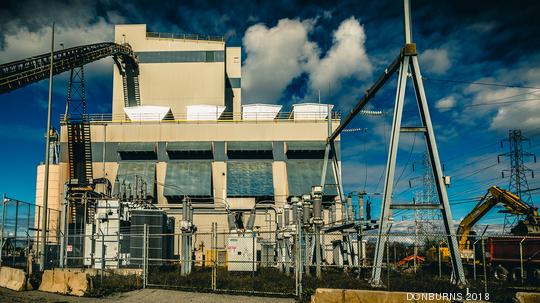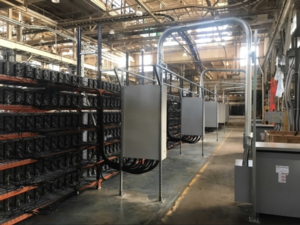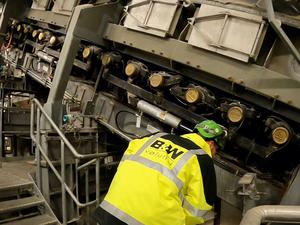
From Quebec to Uzbekistan to Trinidad and Tobago, the Blockfusion team scoured the world for the right place to site a blockchain mining facility.
By early 2019, they had an answer: a former power plant on Buffalo Avenue in Niagara Falls.
In doing so, they joined a wave of blockchain mining pioneers in Western New York, all of them outside corporations that came here for the inexpensive real estate and electrical infrastructure.
Blockchain is a high-tech way of storing data across multiple computers. It has been made famous by cryptocurrency such as bitcoin, which runs on blockchain technology.
The entire system is dependent on the computational process known as “mining,” which requires its own data centers to run all those computers.
This process has created global controversy for the amount of energy it uses. Locally, the operations have run afoul of neighbors and elected officials, leading to a lawsuit in North Tonawanda and a six-month moratorium on new crypto projects in Niagara Falls.
These are stress points of a new technology pushing against municipal structures that haven’t been adapted to handle it.
And it’s one reason why Blockfusion’s leaders are peeling back the layers on their operation in Niagara Falls. The company was exempted from Mayor Robert Restaino’s moratorium, but is still watching closely.
“We want to integrate with the community and be compliant,” CEO Alex Martini said, “but at the same time we need clarity (on local rules and regulations). Nobody wants to invest $10 million in a project that could be shut down tomorrow.”
Blockfusion executives were interviewed recently by a local television station and also featured in Voice of a Nation television show. It’s a campaign to show not only their level of investment in the community, but their commitment to being seen as one of its “good actors.”
Martini, a Manhattan-based tech entrepreneur, founded the company in 2016 with Kant Trivedi, who is based in Toronto.
The goal was to build a company around blockchain, while also creating a social and environmentally conscious organization. Martini invoked his young children, saying he wanted to build a company with ideals he could be proud of.
“We’re not looking for the lowest cost of power generation,” Martini said. “We’re not trying to squeeze or extract value out of an asset and then move on.”
That’s what makes the Niagara Falls location crucial, Martini said, in that most of the electricity there is hydropower generated by the Niagara Power Project. The company acquired a derelict former coal factory on Buffalo Avenue in 2019 with a real estate partner, spending about $2 million, then bought out that partner in 2020 for about $8 million. About 60 people work there now, and Martini said that could scale to 100 this year if the company continues to expand.
Those plans are on hold, however, as the city considers a template for cryptocurrency projects in its borders. Restaino could not be reached for comment.
Martini said his company has a productive relationship with city officials and has offered its input on the process, if needed. He is also seeking to emphasize his company’s investments, including $10 million alone in real estate plus millions more in equipment. Blockfusion is in the process of acquiring four residences in Niagara Falls for “corporate housing,” as leaders and key partners come to visit the site. The company works with a local contractor, Brady Electric, and paid a premium to buy 24 locally manufactured transformers that are now on site.
The company also met recently with state Sens. Todd Kaminsky (Democrat, Long Island) and Kevin Parker (Democrat, Brooklyn) to summarize its business.
Blockfusion has pulled in about $12 million in private funding to support its journey from blockchain startup to growing bitcoin miner. The company will likely never stop looking for new locations to do its work – a new facility is slated to open in Manitoba this year – but in the meantime it would like to expand its operations here.
“I would like to double our capacity right now and start hiring more people,” he said. “But the moratorium extends until June, so we have five months where we have to play the waiting game.”






